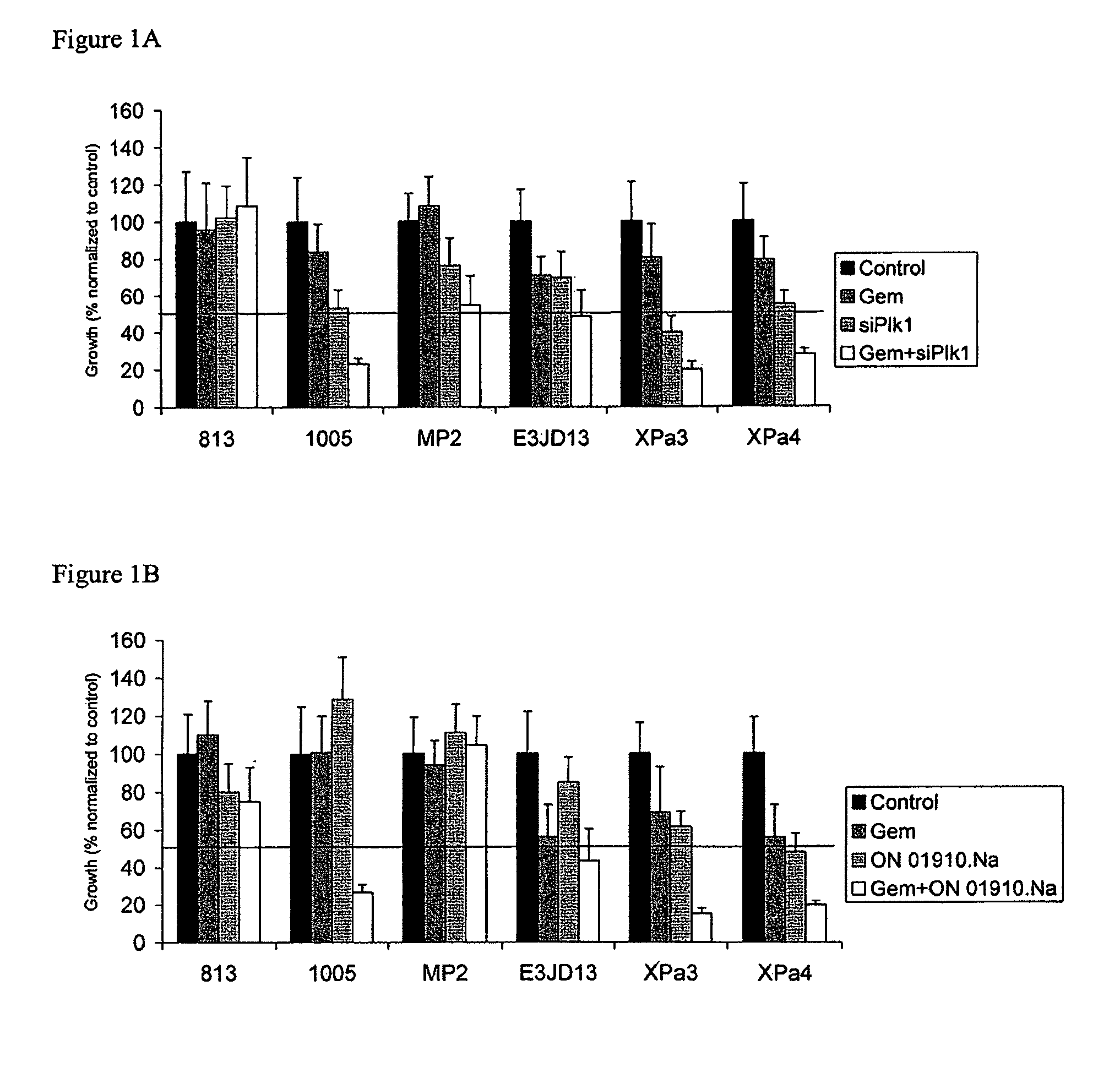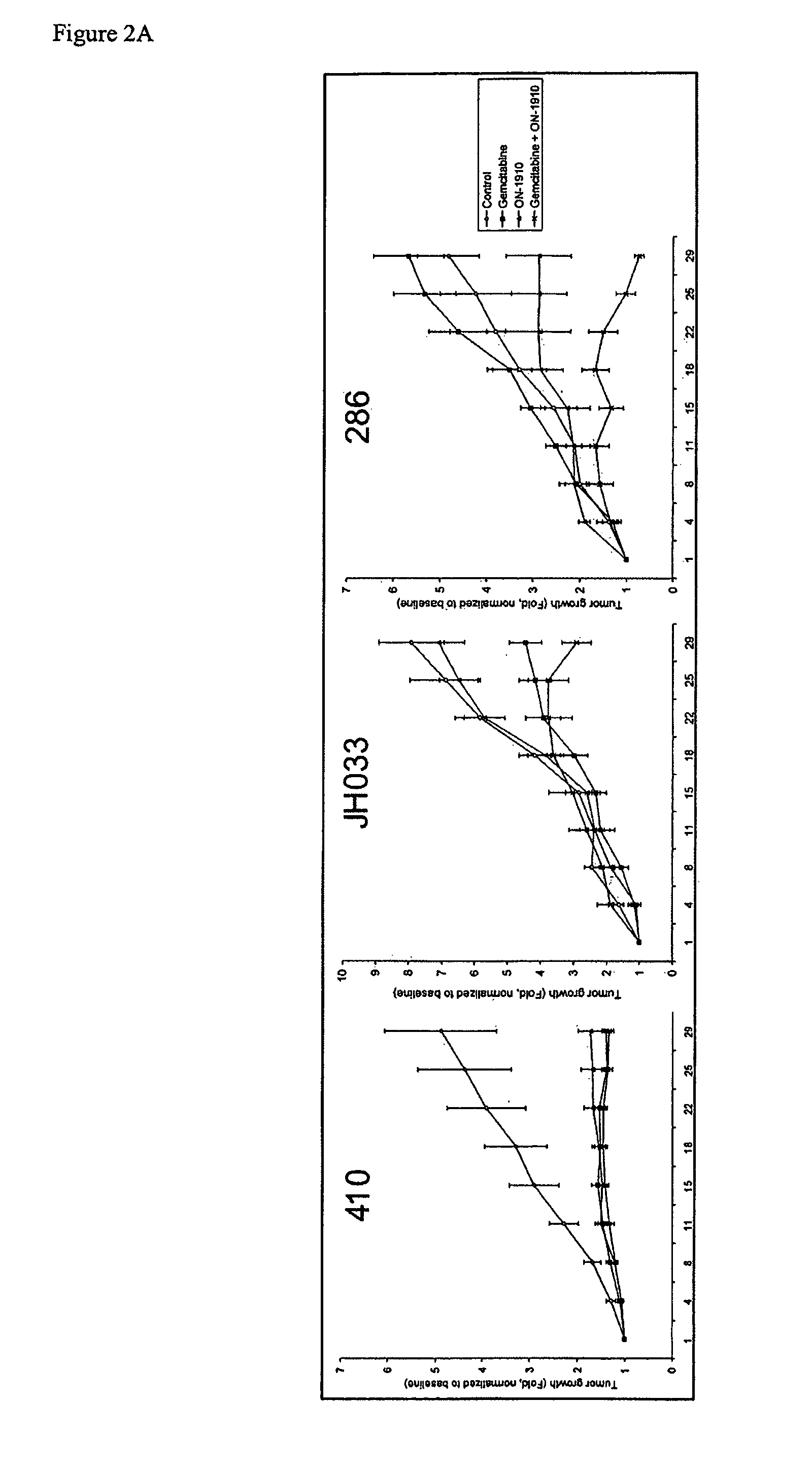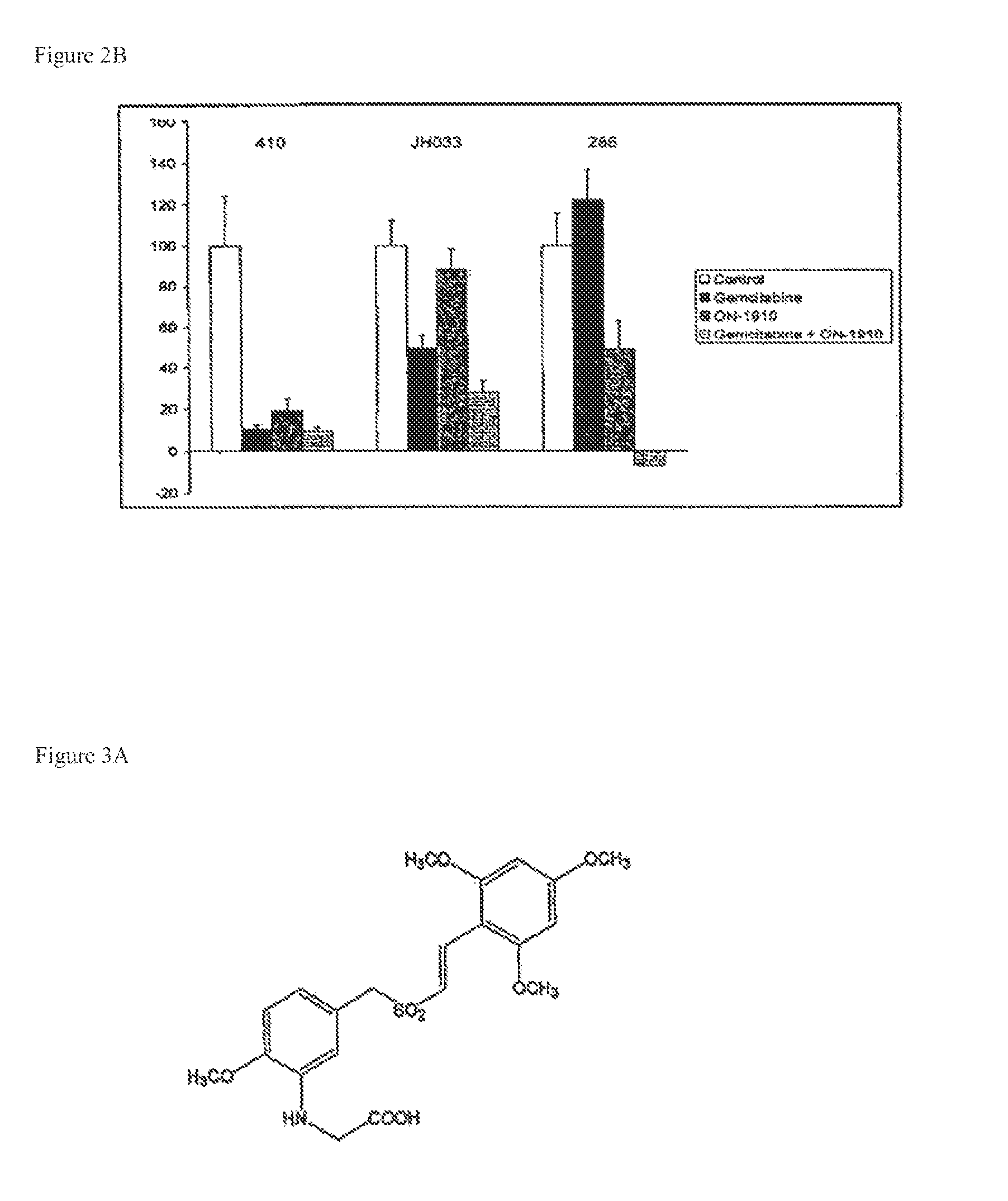ON01910.Na enhances chemotherapeutic agent activity in drug-resistant tumors
a chemotherapeutic agent and tumor technology, applied in the field of on01910.na enhances the activity of chemotherapeutic agents in drug-resistant tumors, can solve the problems of gemcitabine resistance in cancer, a widespread problem, and a particular problem of gemcitabine resistan
- Summary
- Abstract
- Description
- Claims
- Application Information
AI Technical Summary
Benefits of technology
Problems solved by technology
Method used
Image
Examples
example 1
Inhibition of Plk1 Overcomes Gemcitabine Resistance in Pancreatic Tumor Cell Lines
[0127]Six gemcitabine resistant cell lines were grown in culture and treated with gemcitabine alone, an siRNA targeted to Plk1, or a combination thereof for 24 hours. Cells were grown for an additional three days in media. Percent cell growth relative to a control was determined.
[0128]Similarly, the same cell lines were grown in the presence of gemcitabine alone, Plk1 alone, or a combination thereof for three days. Percent cell growth relative to a control was determined.
[0129]Growth was inhibited by the Plk1 siRNA in three out of the six cell lines (FIG. 1A) and ON-01910-Na (FIG. 1B) in two out of the six cell lines, relative to an untreated control. Treatment with a Plk1 inhibitor in combination with gemcitabine strongly inhibited growth in most cell lines. The combination of ON-01910-Na and gemcitabine had at least a significantly additive or synergistic effect in inhibiting cell growth in three cel...
example 2
Inhibition of Plk1 Overcomes Gemcitabine Resistance in Pancreatic Tumors In Vivo
[0130]Pancreatic tumors were implanted in mice as detailed above. Mice were treated with gemcitabine alone, ON-01910-Na alone, or a combination thereof as indicated. Tumor size was measured at four day intervals.
[0131]The three pancreatic tumors demonstrated different susceptibility profiles to each gemcitabine and ON-01910-Na (FIG. 2A). Tumor 41 was susceptible to treatment with both gemcitabine and ON-01910-Na with essentially no tumor growth regardless of treatment. Tumor JH03 was susceptible to treatment with gemcitabine alone, but not ON-01910-Na. However, the combination of gemcitabine and ON-01910-Na was more effective than gemcitabine alone by the end of the experiment on day 28. Tumor 28 was gemcitabine resistant and ON-01910-Na sensitive. Notably, the combination of gemcitabine and ON-01910-Na was significantly more effective than either of the compounds alone.
[0132]On day 28, tumors were harve...
example 3
Treatment of a Subject Having a Cancer Susceptible to Treatment with a Nucleotide Analog Chemotherapeutic Agent
[0134]A subject is diagnosed with advanced bilary tract cancer which is susceptible to treatment with gemcitabine. Surgery is performed to reduce tumor burden. Chemotherapy is initiated to reduce and treat metastatic cancer and any remaining cancer at the primary site. Gemcitabine is administered to the subject at 1000 mg / m2 on days 1, 8, and 15 every 4 weeks for two cycles. Beginning at the third cycle, ON01910 is co-administered as a 24-hour infusion on a weekly continuous schedule (days 1, 8, 15, and 23 of the four week cycle). The dose of ON01910 is 1000 mg / m2 / week. The drugs are co-administered for the remaining cycles of the chemotherapy regimen. The subject is monitored for disease progression or regression.
PUM
| Property | Measurement | Unit |
|---|---|---|
| median time | aaaaa | aaaaa |
| survival time | aaaaa | aaaaa |
| survival time | aaaaa | aaaaa |
Abstract
Description
Claims
Application Information
 Login to View More
Login to View More - R&D
- Intellectual Property
- Life Sciences
- Materials
- Tech Scout
- Unparalleled Data Quality
- Higher Quality Content
- 60% Fewer Hallucinations
Browse by: Latest US Patents, China's latest patents, Technical Efficacy Thesaurus, Application Domain, Technology Topic, Popular Technical Reports.
© 2025 PatSnap. All rights reserved.Legal|Privacy policy|Modern Slavery Act Transparency Statement|Sitemap|About US| Contact US: help@patsnap.com



